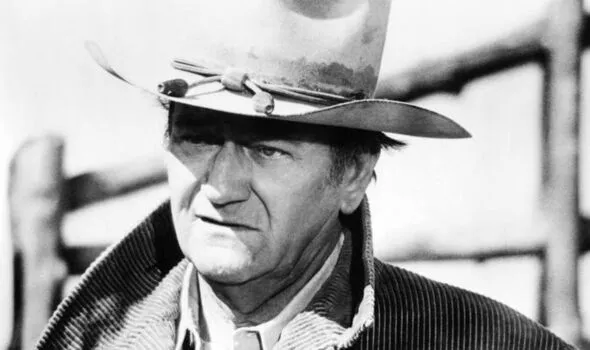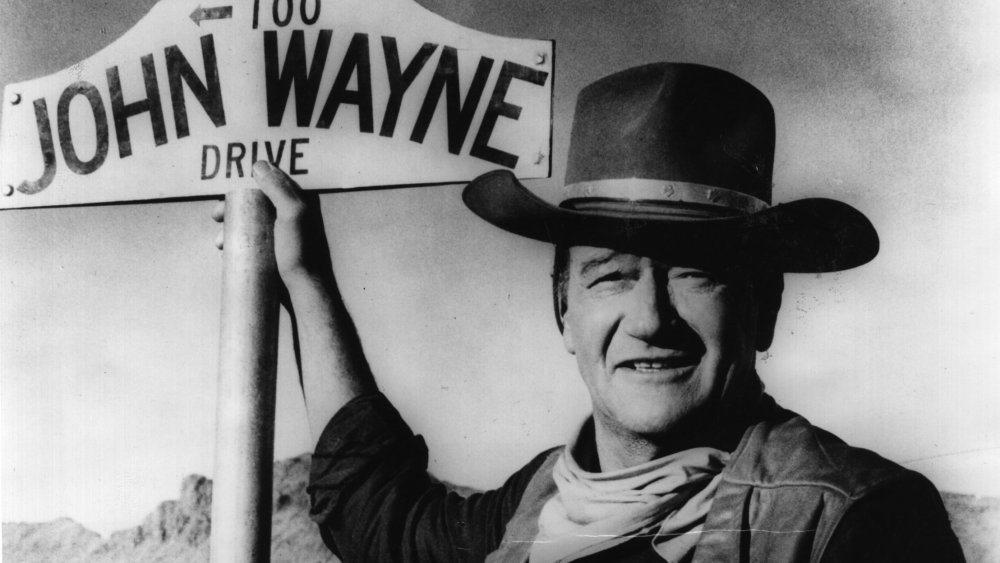John Wayne is back on screens as BBC iPlayer continues to stream the western drama She Wore a Yellow Ribbon — which had a then-recording breaking budget of $1.6million (£1.3million) — the second film in director John Ford’s Cavalry Trilogy. The 1949 film stars Wayne as a US officer who is carrying out his final duty before retirement, taking two women to a stagecoach. Wayne’s Hollywood credentials were already universally known, and throughout his career the legend would go on to star in more than 150 films and TV productions.
The crowning moment in his acting life came in 1970, when he earned his only Academy Award for Best Actor, as a result of his role in True Grit.
But one project that sadly never made it to life was Beau John, a film Wayne hoped would be his last.

Author Scott Eyman, who wrote ‘John Wayne: The Life and Legend’, discussed what Wayne wanted the project to be like, as well as the confession he made before he sadly passed away.
Eyman noted that Wayne’s wish was made at the end of 1978, just under a year before the western icon died in June.Wayne reportedly felt directionless without any film work as he’d spent the last years in recovery with health issues as opposed to being behind the camera.
That year, Wayne received the Utah Film Festival’s John Ford Medallion, though he was unable to travel due to his health.
Instead, friend and director Peter Bogdanovich went to accept the award on his behalf, and when the pair were reunited Wayne asked if he’d consider the film he proposed.
Bogdanovich said: “It’s kind of a half-western thing, it’s not cowboys and Indians, you know, it’s — oh, the humour and the wonderful relationship between this grandfather and the son and the son-in-law and the grandson.
“Wayne said, ‘I hope to hell I live to do it. Just a wonderful story’.”

His friend reassured Wayne he’d do the project, were he alive long enough to commit to it, and in his later life it became the Oscar winner’s main focus in life.
As he grew even more ill, Wayne then proposed the project to director Ron Howard, though he didn’t want anyone but the dying star to be in it.
According to the book, Wayne told Howard: “I found a book. I think it’s a movie. It’s you and me or it’s nobody.”
But sadly for Wayne, he died before anything could be done to start the movie.
Howard added: “It never got past the verbal stage.
“And at that point, he was showing signs of not being well. I was a little doubtful.”
Wayne passed away in 1979 as a result of stomach cancer, and was buried in the Pacific View Memorial Park Cemetery in Corona del Mar, Newport Beach.
His legacy was secured when the American Film Institute chose him as one of the greatest male stars of classic American cinema.
He was among a select group of stars who managed to negotiate their way from the silent film era of the Twenties, into the talkies that followed.
He had seven children in total, and was married three times.
